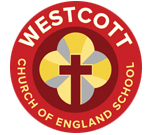Religious Education
Following our vision at Westcott of “Let your light shine before others” gives children the opportunity to flourish academically, personally and socially, to serve and care for each other and be the best they can be for the highest and greatest good.
Intent
RE has a significant role with the personal development of each pupil and supports an understanding of the spiritual, moral, social & cultural questions in their lives. RE at Westcott promotes respect, tolerance and open-mindedness towards others with the same and different faiths and beliefs. It encourages our pupils to develop their sense of identity, value themselves and the community within which they live. It also enables the children to gain religious literacy through shared experiences, reasoning and reflection.
We aim to engage pupils in an enquiry approach where they can develop an understanding and appreciation for the expression of beliefs, cultural practices and influence of principle religions and world views in the local, national and wider global community.
Implementation
In RE all children will learn about and from principal religions. We aim to develop the children’s ability to reflect on their own beliefs and to explore other perspectives on the nature of faith. Children’s spiritual, moral, social and cultural development is promoted through discussions and opportunities in RE.
We use the Oxford Diocese scheme of work in line with Buckinghamshire’s agreed RE Syllabus. We are beginning the process of deepening children’s understanding of Christianity through use of the Understanding Christianity resource. This combination ensures we teach children a broad and progressive curriculum. Our curriculum progresses through answering key questions with the children.
Our lessons and acts of collective worship help to underpin our Christian vision and values of Love, Perseverance and Respect, which we encourage the children to learn and to reflect on. We have strong links with the village church and participate in services and feast days with the church and the local vicar throughout the year.
Educational visits and enrichment activities are designed to develop cultural capital. We participate in Harvest, Christmas and Easter services and festivities with our local church and fully embrace these seasons in school. All age groups regularly visit the Church of St Mary’s which is next to school premises, to take part in assemblies and to explore Christianity further. Pupils will also have the opportunity to visit another place of Worship.
Each year group studies different faiths:
EYFS – Christianity and festivals celebrated by the cohort
KS1 – Christianity and Judaism
LKS2 – Christianity, Islam and Hinduism
UKS2 – Christianity, Islam, Sikhism and Hindusism
Each class is encouraged to keep a record of children’s comments and discussions in RE in an individual pupil book or ‘RE class Book’. This may also contain a record of outcomes from practical activities and responses during lessons as well as written work recorded in children’s individual RE books. Tapestry, our online journal resource may also be used in EYFS to record photographic and video evidence of experiences and outcomes in RE.
Impact
Through RE Children will enjoy learning about other religions. Children will have a sound knowledge of a range of principal world religions and will be able to discuss these with respect and understanding. They will be able to question and enquire about a range of religions to further deepen their own understanding and link learning to their own lives through the values. This helps to give children stronger links and understanding about what they are learning. Children will be able to engage with Biblical texts and discuss these with confidence. They will develop an understanding of other cultures, ways of life and beliefs and communicate this within school and within the wider community.
RE also reflects the requirements of the Statement of Entitlement for Religious Education published by the Education Office of the Church of England in February 2019.
This document states:
‘In all Church schools religious education must be considered an academic subject. All pupils are entitled to religious education that is delivered in an objective, critical and pluralistic manner. Pupils are entitled to a balanced RE curriculum which enquires into religions and world views through theology, philosophy and the human and the social sciences. It should be a coherent curriculum that enables progress through ordered and sequential learning developing both knowledge and skills. There should be a clear curriculum vision and intent, a structure for implementation and provision and a process for evaluating impact.’
